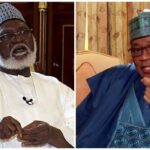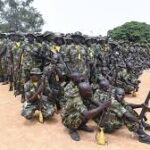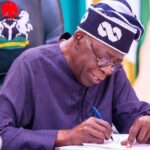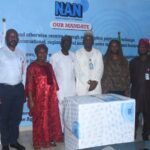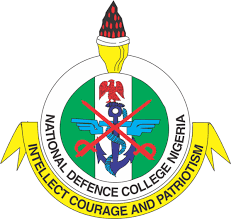By Justina Auta
Rear Admiral Olumuyiwa Olotu, Commandant of the National Defence College (NDC), has highlighted the exclusion of women from peacekeeping efforts as a major barrier to achieving lasting peace and stability.
He made this statement at the Fifth Annual Forum of the Women, Peace, and Security Sector Reference Group on Wednesday in Abuja.
During his speech on “Rethinking Masculinity for Effective Gender-Responsive Peacebuilding and Inclusive Security Institutions”, Olotu explained that masculinity was shaped by societal norms and cultural barriers.
He added that the lack of representation further prevented women from participating in peacekeeping efforts.
He emphasised that women were often more directly impacted by crises and security challenges, and their exclusion from peacebuilding efforts limited their ability to contribute their unique perspectives, skills, and experiences.
Olotu stated, “Gender-responsive peacebuilding acknowledges that conflicts affect both men and women differently, and sustainable peace cannot be achieved without addressing these disparities.”
He called for challenging outdated narratives around masculinity, recognising that men were not just warriors but also mediators, caregivers, and collaborators.
The commandant stressed the importance of rethinking masculinity and understanding that true strength lied not in domination or exclusion, but in the inclusion of all people to achieve effective and sustainable peace and security.
He urged that security leaders, policymakers, and advocates should question and reject norms that promote violence and aggression.
Olotu further called for inclusive decision-making processes that ensured women’s participation, as well as addressing all forms of gender-based violence and discrimination.
He acknowledged improvements in gender mainstreaming within Nigeria’s security sector, noting that more women were now represented in leadership roles and that gender-sensitive recruitment policies were gaining ground.
“Five of the nine newly promoted staff in the College are women, a clear indication that inclusivity is improving, and over time, the issue of exclusion will diminish,” he said.
Prof. Hauwa’u Yusuf, a Professor of Criminology and Gender Studies at Kaduna State University, also addressed the stereotype against women, stressing that when given the opportunity, women excel in leadership roles.
Mrs Chizoba Ogbeche, National Vice President of the Nigeria Association of Women Journalists (NAWOJ), emphasised the need for reorientation within security agencies.
She pointed out that improving the flow of information to the media could play a key role in addressing issues related to peace and security.
She further explained that such improvements in communication would help amplify important topics and raise awareness about critical matters affecting the public.
Additionally, community-based Women Peace and Security (WPS) groups, including media, the HeForShe network, women mediators, and mixed observer teams, shared their experiences promoting peace and security across Nigeria. (NAN) (www.nannews.ng)
Edited by Abiemwense Moru





